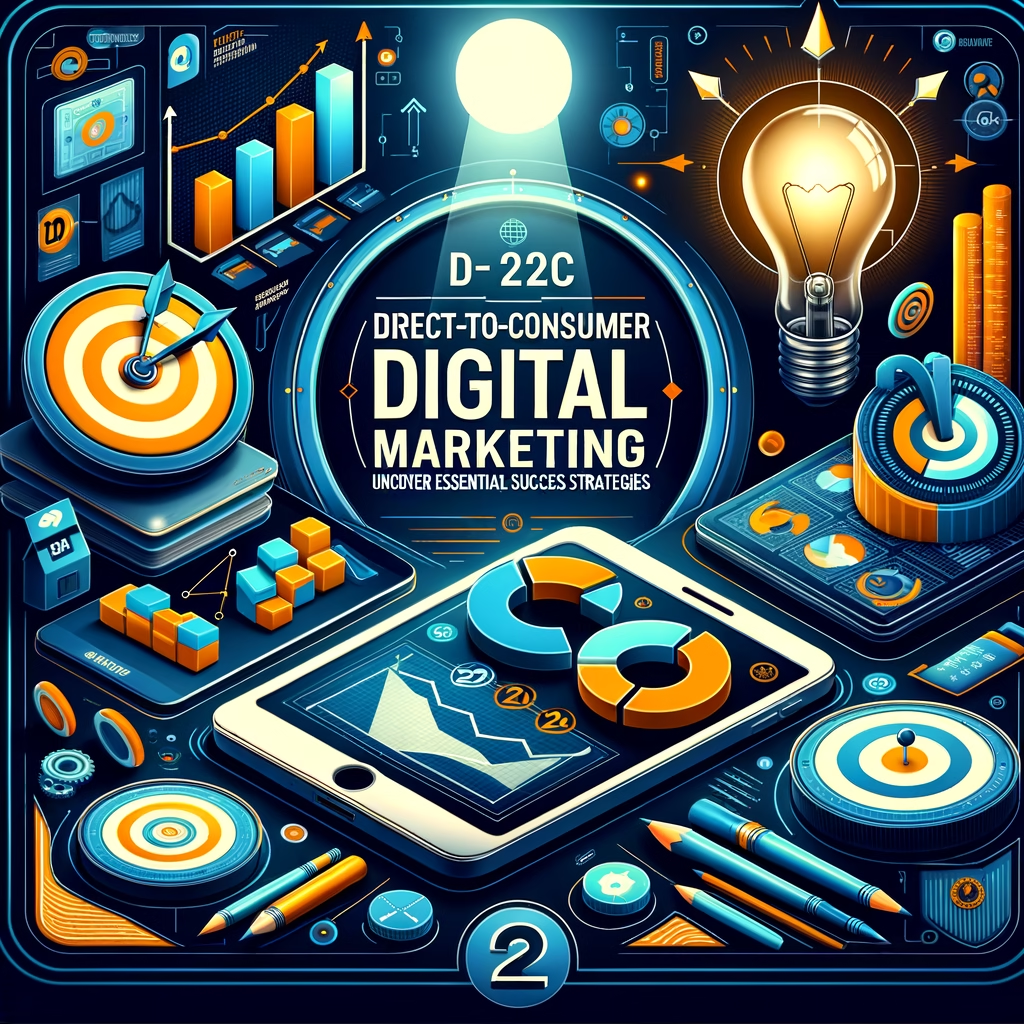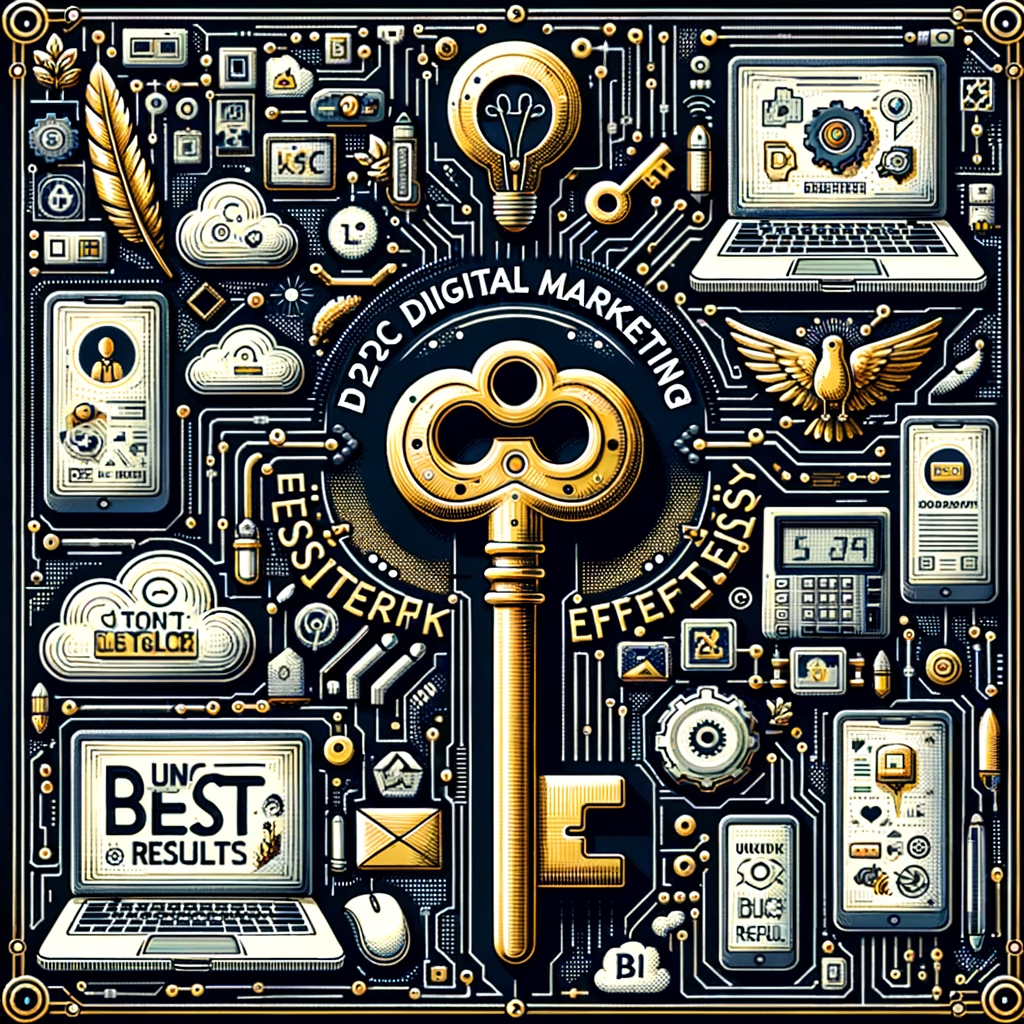B2B Digital Marketing: Exclusive Strategies for Success
The Power of B2B Marketing Automation Tools
B2B Marketing Automation Tools are revolutionizing the way businesses engage with each other. In today’s digital ecosystem, where efficiency and personalization are key, these tools are indispensable for companies aiming to streamline their marketing efforts and drive meaningful engagement with their business customers. Implementing the right automation tools can drastically enhance productivity, optimize the customer journey, and ultimately boost sales.
Understanding the Importance of Marketing Automation in B2B
At the heart of B2B digital marketing lies the need to nurture long-term relationships. Unlike B2C, which focuses on immediate results and impulse buys, B2B is about building a trusted partnership. Marketing automation tools provide companies with the technological edge to maintain this balance. Through features like lead scoring, personalized email campaigns, and integrated CRM systems, businesses can provide a tailored experience that resonates with their clients’ unique needs.
Choosing the Right Tools for Your Business
Selecting appropriate marketing automation tools requires a nuanced understanding of your business objectives and customer behaviors. Businesses must choose tools that align with their goals, whether to enhance lead generation, improve customer retention, or streamline communication.
1. Lead Generation and Scoring Software
These tools help identify and prioritize potential leads based on their interactions with your brand. For a B2B company, understanding which leads are most likely to convert can optimize sales strategies and resource allocation. Examples include Salesforce Pardot and HubSpot.
2. Email Marketing Automation
Email continues to be a robust channel for B2B communication. Automation tools allow businesses to create personalized campaigns, ensuring messaging is relevant and timely. Platforms like Mailchimp and Marketo offer advanced segmentation and analytics capabilities to enhance engagement rates.
3. CRM Integration Tools
A seamless CRM integration ensures marketing and sales teams are synchronized. This alignment is crucial for tracking customer interactions, managing deals, and fostering collaboration. Tools like Zoho CRM and Salesforce are renowned for their robust integration capabilities.
4. Analytics and Reporting Software
To measure success accurately, businesses need powerful analytics tools that translate data into actionable insights. Google Analytics and Adobe Analytics are industry standards, offering detailed reports on customer behavior and campaign performance.
Implementing Automation Tools: A Step-by-Step Approach
For businesses new to automation, the implementation process might seem daunting. However, a structured approach can simplify the transition:
1. Assess Your Needs
Before investing in tools, analyze your business processes to identify bottlenecks and opportunities for automation. Survey your team to understand their challenges and gather insights to tailor your approach.
2. Define Objectives
Clear objectives guide tool selection and implementation. Are you looking to improve lead quality, enhance communication, or drive sales growth? Having specific goals helps measure success and adjust strategies.
3. Select Key Tools
Based on your objectives and budget, select tools that best fit your operational needs. Consider scalability, user-friendliness, and support services while making your choice.
4. Train Your Team
Successful implementation hinges on user adoption. Ensure your team is adequately trained to utilize the new tools, providing ongoing support and resources as needed.
5. Monitor and Optimize
Post-implementation, continuously monitor performance metrics to assess the effectiveness of your strategy. Use data insights to refine campaigns and enhance ROI.
Overcoming Challenges with Marketing Automation
Implementing B2B marketing automation tools comes with its set of challenges. Businesses often grapple with integration issues, data management, and maintaining a personal touch.
– Integration Issues
Seamless integration is crucial for maximizing tool potential. Regularly audit your systems to ensure all components work harmoniously and address any compatibility challenges swiftly.
– Data Management
With automation, there’s a risk of data overload. Establish clear data management protocols to ensure quality and relevance. Invest in tools that offer data cleansing capabilities to maintain database integrity.
– Maintaining Personalization
Automation should enhance, not diminish, personalization. Use advanced segmentation techniques to ensure communications are bespoke and resonate with client needs.
The Future of B2B Marketing Automation
As technology evolves, so do the capabilities of marketing automation tools. Future trends indicate an increased focus on AI and machine learning, offering predictive analytics and advanced personalization that are set to redefine B2B interactions.
1. AI and Machine Learning
AI-powered tools provide deeper insights and more accurate predictions regarding customer behavior. As this technology becomes more accessible, it can transform how businesses approach marketing campaigns.
2. Chatbots and Virtual Assistants
Real-time customer support is becoming increasingly important. Integrating chatbots can provide immediate assistance, improve client experience, and gather valuable insights.
3. Enhanced Integration Capabilities
As more businesses adopt diverse tech stacks, the demand for tools that offer seamless integration will grow. Future tools are likely to offer multi-platform synchronization to enhance operational efficiency.
Conclusion
B2B Marketing Automation Tools are the cornerstone of modern digital strategies, enabling businesses to optimize processes, enhance engagement, and drive growth. By selecting the right tools and adopting a strategic approach, companies can navigate the complexities of B2B marketing with confidence and success. As technology continues to advance, staying informed about emerging trends will be essential for maintaining a competitive edge in the ever-evolving digital landscape.




